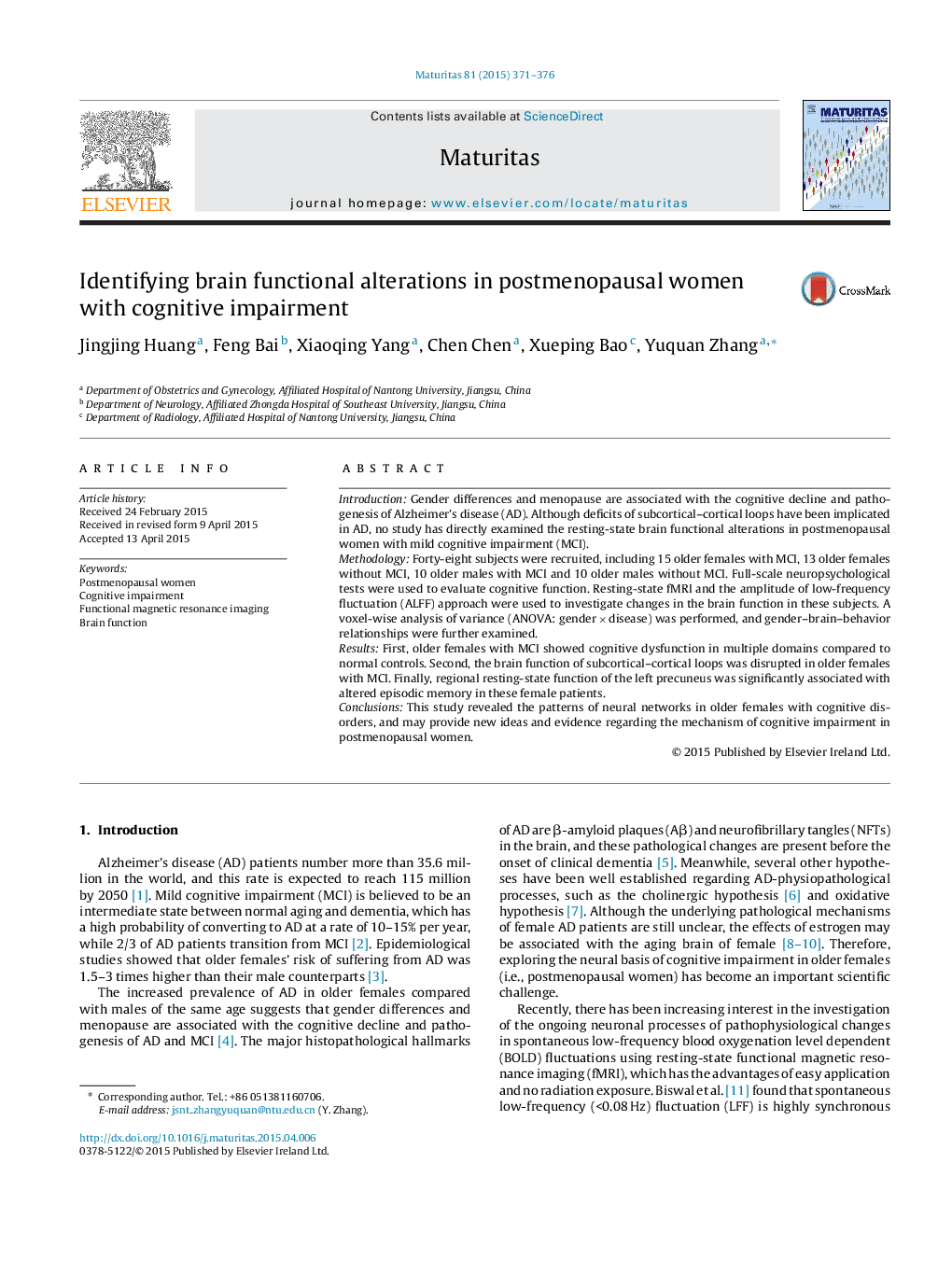| Article ID | Journal | Published Year | Pages | File Type |
|---|---|---|---|---|
| 1917116 | Maturitas | 2015 | 6 Pages |
•Multi-dimension of cognitive dysfunction was observed in postmenopausal women.•Disrupted subcortical–cortical loops were in postmenopausal women with MCI.•Left precuneus was associated with altered episodic memory in postmenopausal women.
IntroductionGender differences and menopause are associated with the cognitive decline and pathogenesis of Alzheimer's disease (AD). Although deficits of subcortical–cortical loops have been implicated in AD, no study has directly examined the resting-state brain functional alterations in postmenopausal women with mild cognitive impairment (MCI).MethodologyForty-eight subjects were recruited, including 15 older females with MCI, 13 older females without MCI, 10 older males with MCI and 10 older males without MCI. Full-scale neuropsychological tests were used to evaluate cognitive function. Resting-state fMRI and the amplitude of low-frequency fluctuation (ALFF) approach were used to investigate changes in the brain function in these subjects. A voxel-wise analysis of variance (ANOVA: gender × disease) was performed, and gender–brain–behavior relationships were further examined.ResultsFirst, older females with MCI showed cognitive dysfunction in multiple domains compared to normal controls. Second, the brain function of subcortical–cortical loops was disrupted in older females with MCI. Finally, regional resting-state function of the left precuneus was significantly associated with altered episodic memory in these female patients.ConclusionsThis study revealed the patterns of neural networks in older females with cognitive disorders, and may provide new ideas and evidence regarding the mechanism of cognitive impairment in postmenopausal women.
